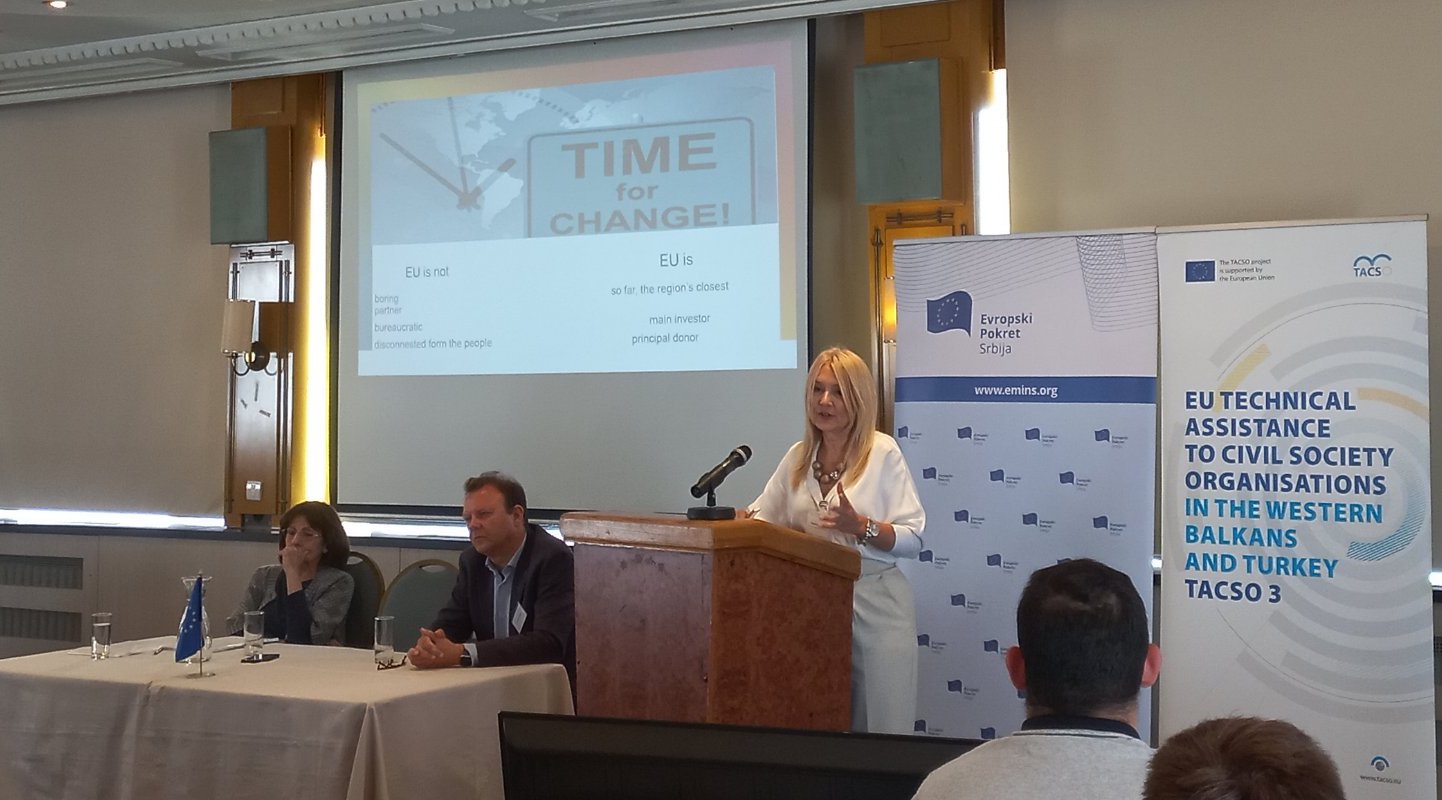
Representatives of 21 civil society organizations from the Western Balkans and Turkey discussed how to improve the EU enlargement process and communicate more effectively with the public at conference “Revitalization of EU Values” held from 8 till 10 May 2022 in Belgrade. The conference was organized by the European Movement in Serbia, with the support of EU TACSO 3.
Richard Allen, EU TACSO 3 team leader opened the conference. He warned that Brexit showed that the benefits of the EU must be visible to all citizens, not just elites, and that anti-EU narratives are not harmless but very dangerous and threatening, not only to the Union but also to European civilization.
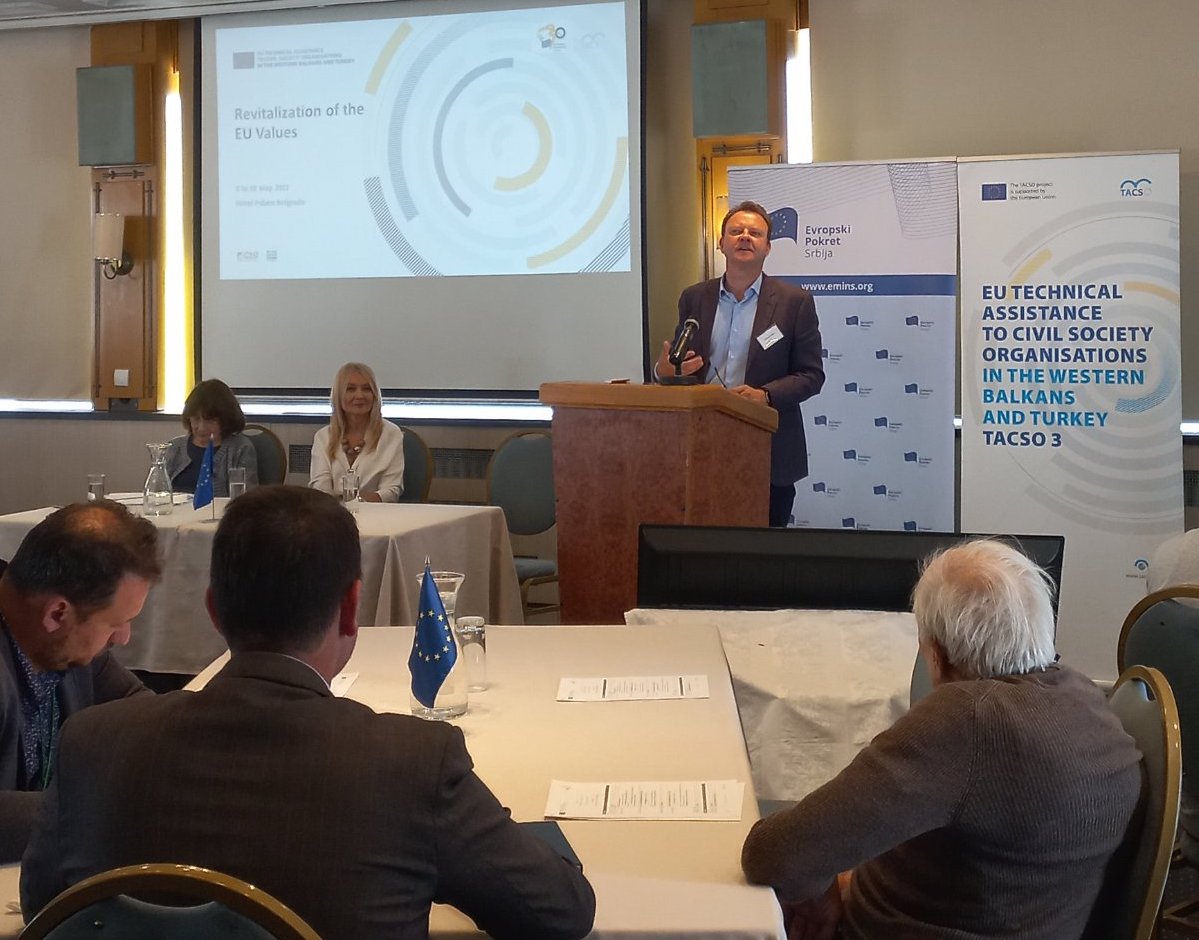
Jelica Minić, President of the European Movement in Serbia, pointed out a long list of reasons why the EU should be region’s choice. “EU replaces exclusion with inclusion, helps Europeans understand their common values, encourages cooperation and efficiency, sets an example to the rest of the world, enables Europe to speak ‘louder’ and encourages a law-based approach to international affairs.”
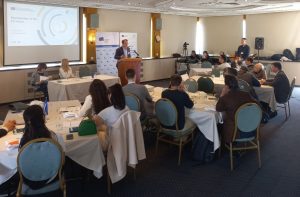
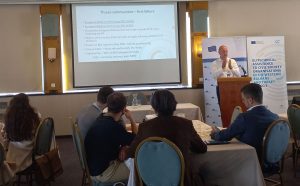
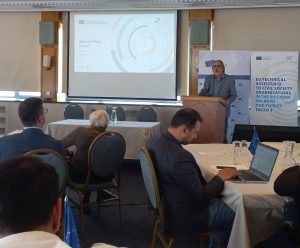
During the conference, participants had chance to hear three experts in the fields of European integration, Advocacy and Communication. Vladimir Medjak, an expert in the field of European integration spoke about the history of the EU, its institutions, decision-making processes, as well as ways to monitor EU integration. Voja Zanetic expert in communication spoke about communication techniques and how to improve the communication on EU values and integration. Suzana Milicic, advocacy expert gave presentation on how to develop advocacy plan and frame the message organisation wish to communicate, while keeping in mind context and target group.
Download the presentations:
1. MEDJAK: EU history, institutions and decision-making process
2. ZANETIC: How to improve the communication on EU values
3. MILICIC: Advocacy Campaigns
4. Monitoring EU accession process
During the conference round table was held with representatives of all Western Balkan countries and Turkey on the topic “Future of the Western Balkans and Turkey: Challenges and Expectations “. The round table was opened by the Assistant Minister of Foreign Affairs for European Integration of the Republic of Serbia, Suzana Bošković-Prodanović. She said that the process of EU integration has many ups and downs, but that membership in the Union is of crucial importance for Serbia. Activist and academic Selcuk Erez spoke about the impact of human rights violations on Turkey’s EU integration. Journalist Ben Andoni and European Policy Institute researcher Stefan Ristovski discussed the impossibility of obtaining a date for accession talks for Northern Macedonia and Albania, concluding that it was affecting the Union’s credibility with citizens in the region. The executive director of the Balkan Forum, Astrit Istefi, spoke about the visa liberalization process for Kosovo*, which, in his opinion, is extremely slowed down by the lack of dialogue between Belgrade and Pristina. The editor of the magazine “Buka”, Aleksandar Trifunović, pointed out the lack of dialogue between the entities of Bosnia and Herzegovina, which leads to the fact that the state is still perceived as on the verge of conflict in international circles. The program assistant of the Center for Civic Education, Milica Zindović, spoke about the formation of a new minority government in Montenegro, which has a handful of challenges ahead of it in order to accelerate the process of European integration. Closing the round table, Vice President of European Movement in Serbia Ivan Vujacic addressed the impact of the Ukrainian crisis on the future of Serbia, which, in his opinion, can no longer maintain a neutral position but must opt for one side.
Guest speaker at the conference that attracted great attention from Serbian and regional media was Emanuel Saracin, Germany’s special envoy to the Western Balkans. Saracin said that his country is in favour of full membership of the Western Balkan countries in the European Union, rejecting the possibility of these countries being members of the “second order or in some kind of partnership with the Union”. Germany is committed to the Berlin Process, Saracin said, but the only key to Serbia’s European integration success is resolving the issue of dialogue between Belgrade and Pristina.
Paul Henry Presset, Head of Information, Communication and Media in the EU Delegation to Serbia, presented the EU Delegation’s campaign “We are better together” that has the goal to improve the communication of European values and integration process.
Kosovo (*) – This designation is without prejudice to positions on status, and is in line with UNSCR 1244/1999 and the ICJ opinion on the Kosovo declaration of independence.
